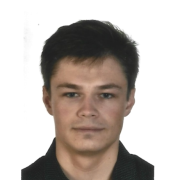Status
Scientific disciplines
Research direction
Physics and Analysis
Affiliate site
Lyon
Plastic recycling is one of the main challenges of the energy transition. Plastics are widely used in many fields (automotive, packaging, and housing) and generate a huge quantity of waste. As mechanical recycling is typically accompanied by degraded plastic properties, chemical recycling (dissolution, depolymerization or conversion) is needed to develop a circular economy, in which purified monomers and/or polymers can be used in similar applications as the virgin material, which is produced from fossil fuels. Moreover, the final chemical recycled product must fulfill specifications in function of each application. Very recently, the legislation (Stockholm Convention, REACH, ...) for plastics materials and especially for food contact materials (FCM) pay attention to Per- and polyfluoroalkyl substances (PFASs) because of their persistence and human health consequences. These compounds are mainly used as fire retardants, processing aids, fluorination treatment and moisture resistance. However, the exact nature and amount of PFASs present in the plastic waste to be recycled are difficult to predict and are still unknown.
To overcome this huge analytical challenge, the thesis project proposed to develop a complete methodology for fluorine speciation based on non-targeted analysis (NTA). The methodology will be based on the development of selective extraction methods for volatile and non-volatile PFASs in a set of waste plastic samples associated to hyphenated techniques based on gas and/or liquid chromatography with both F specific quantification using tandem mass spectrometry inductively coupled plasma (ICP-MS/MS) and high resolution mass spectrometry (HRMS) identification, potentially coupled with ion mobility spectrometry. The quantification using the F total mass balance approach will be used but also appear as a very hard task to achieve.
Keywords: Plastic recycling, fluorine speciation, extraction methods, chromatography, high resolution mass spectrometry, inductively coupled plasma mass spectrometry, mass balance
PhD Director Dr. Charles-Philippe LIENEMANN, HDR, IFPEN
External PhD Co-Director Prof. Jörg FELDMANN, Professor, University of Graz
Doctoral School ED206 - Ecole doctorale Chimie, Procédé, Environnement, https://www.edchimie-lyon.fr/
IFPEN supervisor Dr. Fabien CHAINET, Research Engineer, Fluid Characterization Dpt., fabien.chainet@ifpen.fr,
PhD location IFPEN, Lyon, France (2/3) and Graz University (Austria) (1/3)
Duration and start date 3 years, starting in fourth quarter 2023
Employer IFP Energies nouvelles, Lyon, France
Academic requirements University Master degree in analytical chemistry, chemical science or material sciences
Language requirements Fluency in English, willingness to learn French
Other requirements Strong knowledge of analytical sciences, particularly chromatography, extraction methods and mass spectrometry (ICP/MS and HRMS). Strong taste for experimentation.
